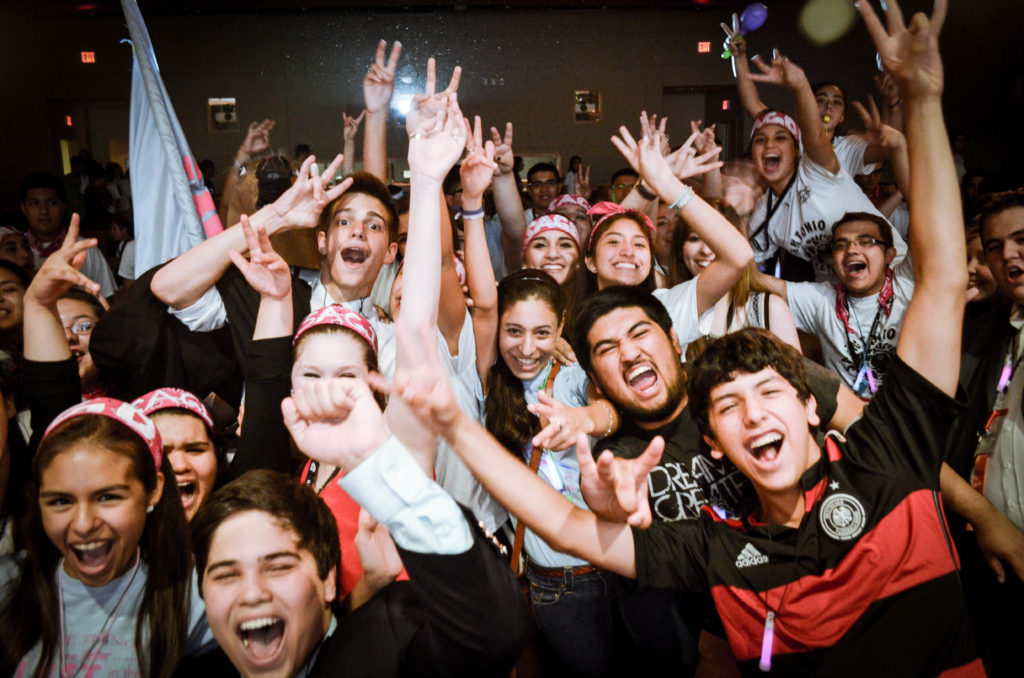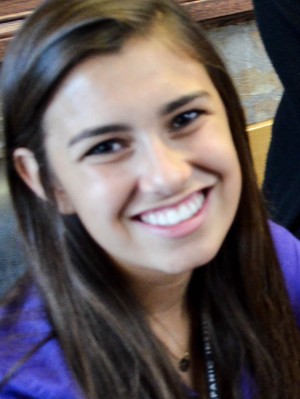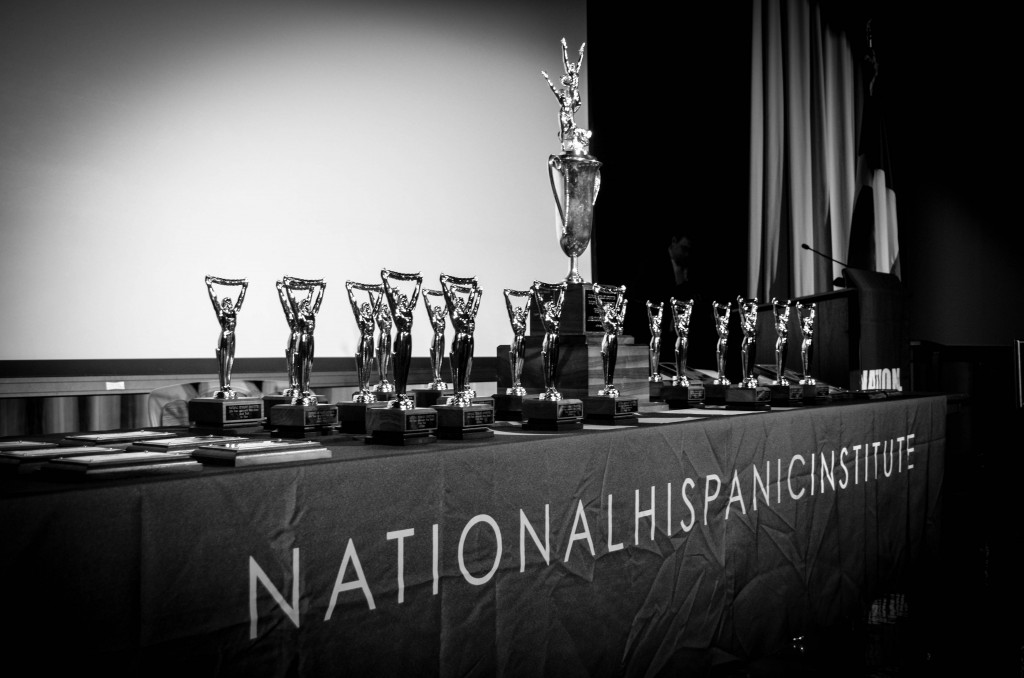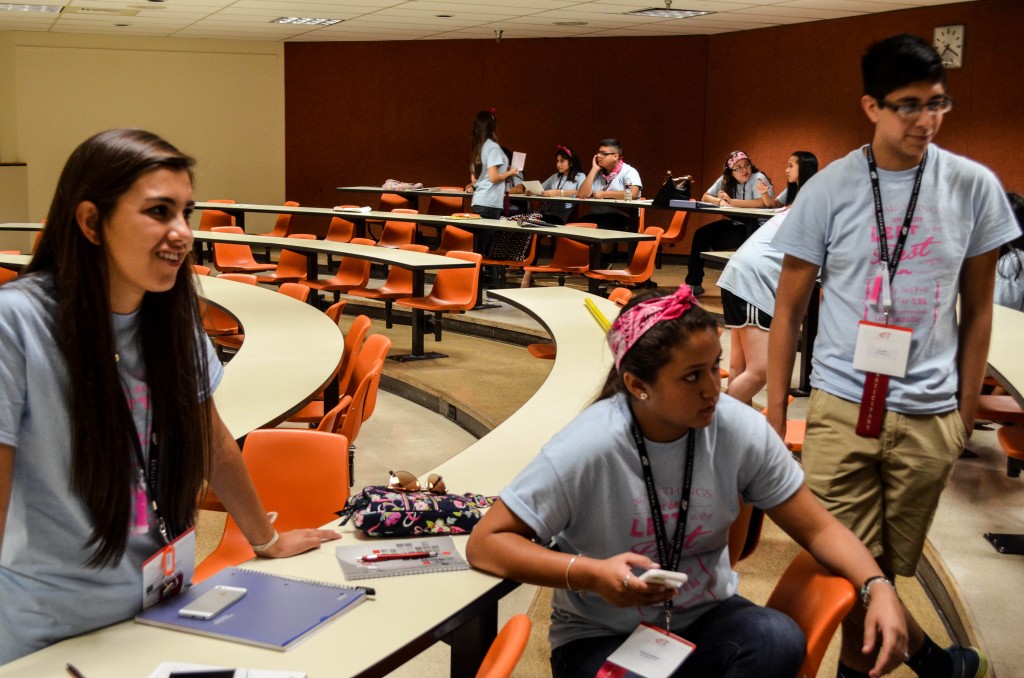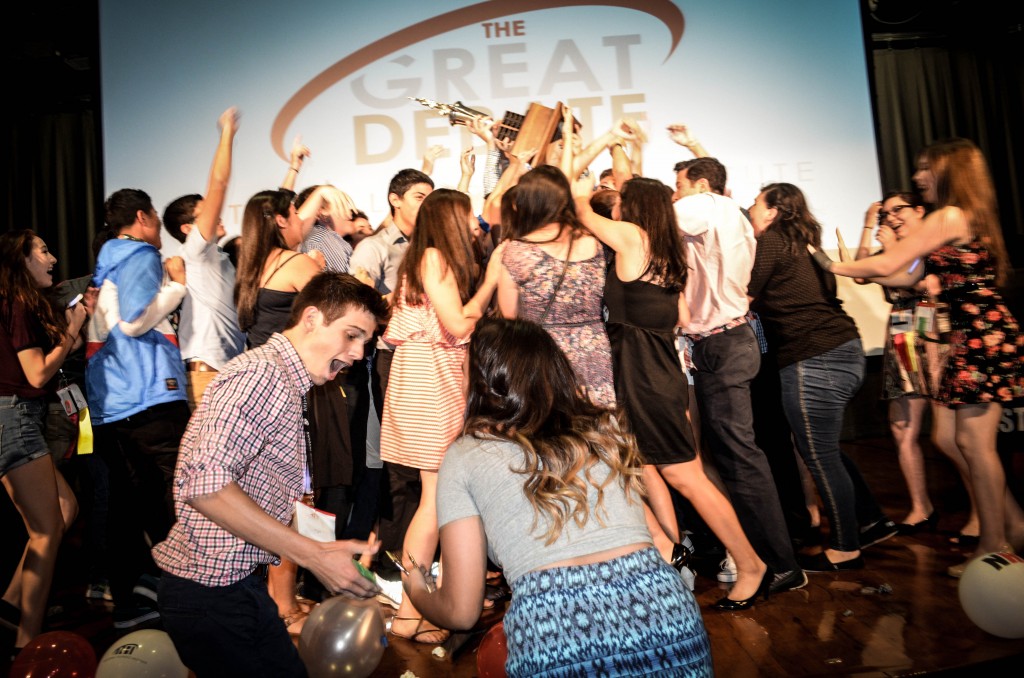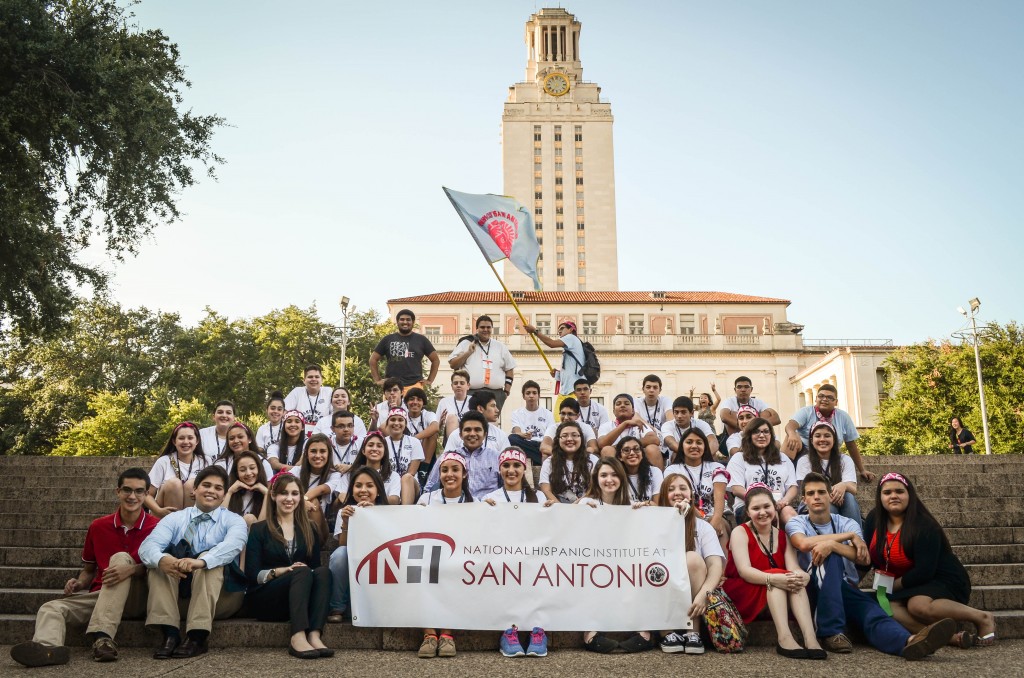When I signed up to participate in the annual Great Debate competition, I didn’t expect to find a passion, let alone actually excel in it. I didn’t expect that the staff members and teammates, who I only met about eight months ago, would become my family and shape me as a person.
Before I talk about my experiences at the Great Debate, I want to give a little background on the program that I believe to be revolutionary when it comes to developing young leaders. The National Hispanic Institute is an international leadership program that caters to high school students, offering various programs for different grade levels. San Antonio’s regional chapter, The National Hispanic Institute at San Antonio, hosts training sessions throughout the year for the freshmen Great Debate programs; with around 200 students represented from all districts in the San Antonio area each year. For the freshmen Great Debate program, students can choose to either attend the Texas Great Debate at Austin College in early June or the Texas Ambassador Great Debate at The University of Texas at Austin in late July.
Students compete for 4 days as a region against 6-8 other Texas regions including the Rio Grande Valley, El Paso, Houston, Dallas, Laredo, Corpus Christi, among others. They compete in one of the four Great Debate categories: Mock Trial, Cross Examination, Extemporaneous Speaking, and Oratory. This summer, the National Hispanic Institute at San Antonio placed 3rd at the 2014 Texas Great Debate, and brought back the Silver Cup as the returning champions of the 2014 Texas Ambassador Great Debate.
My experiences with the National Hispanic Institute continuously exceed my expectations. My team initially consisted of individuals who ranged from being quiet and shy, to boisterous and uncontrolled, and everything in between. Throughout the training, though, I watched us evolve to become eloquent and confident leaders. A strong mutual respect drifted between our whole team, staff included, that allowed us each to excel at our own pace and reach our maximum potential as a team. As time passed, it was no longer an obligation to take advice from staff members or listen to other teammates practice. Instead, it was something we all wanted to do. I wanted my staff members to see my progress and my hard work, and I wanted to see that of my teammates as well.
On the night of our arrival at the Great Debate, we had four and half hours for final preparation, but this time, there were no staff members. My team split up into our four categories, each in claiming a corner of the large college classroom. My category, Cross Examination, quickly broke into a panel exercise, where one by one we presented an opening statement either affirming or opposing the topic. The topic in Cross Examination specifically addressed the ethics and morals of how Latino public elected officials use certain potentially harmful terminology to classify members within our community.
All of us contributed by judging and critiquing each other’s presentation style and arguments. Despite being awake since 6 AM that morning, with the extreme anticipation we all had in preparation for our rounds, we practiced tirelessly because we had a serious desire to perfect our speeches. We knew we wanted it more than any other region, so we worked for it, staying awake from the contagious adrenaline that kept our tired brains alert. What we did not know was that we would be in the same position 24 hours later, making final preparations for the single elimination rounds; since all six of our Cross Examination teams would eventually advance into the Sweet Sixteen rounds. Pride overflowed in each of us, along with our ‘210’ chants ringing in our ears.
As my partner, Araceli Arizpe from YWLA, and I kept advancing in the single elimination competition, I was ecstatic to find out that we had made it to the final round. We ended up taking 1st place in the category of Cross Examination, and I realized that all of our hard work and frustrations had paid off. We had a total of 3 teams from San Antonio in the final rounds of competition, and seeing them alongside me and Araceli on stage was proof that this team was something special. It was only fitting that when our whole team was called up as the 2014 Texas Ambassador Great Debate Champions, we ran up on stage, tears in our eyes, to celebrate the fact that we actually accomplished what we set out to do.
The championship wasn’t what made the experience great, though. Yes we realized that we are all strong public speakers, but NHI taught us how to be leaders in our own communities. In the SA2020 vision, we can see that San Antonio has very ambitious goals for its future—goals like strengthening our economic competitiveness, our educational achievement, the civic engagement of our citizens and the diversity of our public officials. I believe that organizations like NHI better the San Antonio community by strengthening the next generation of leaders to help us get there.
Winning, in the end, wasn’t as powerful as understanding that our ideas are powerful and can change the world. I became passionate about the topics we addressed at the Great Debate because I realized that they were personally relevant to me and my teammates—the future leaders of our communities. When we make important community issues and ideas relevant to us, we can inspire others to care and share our passions with the world. The leadership education that NHI offers is a promising step in not only building a stronger Latino community, but a stronger San Antonio community at large.
